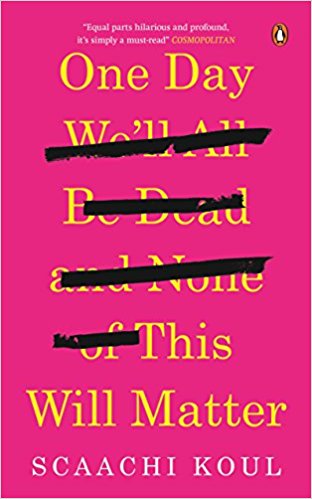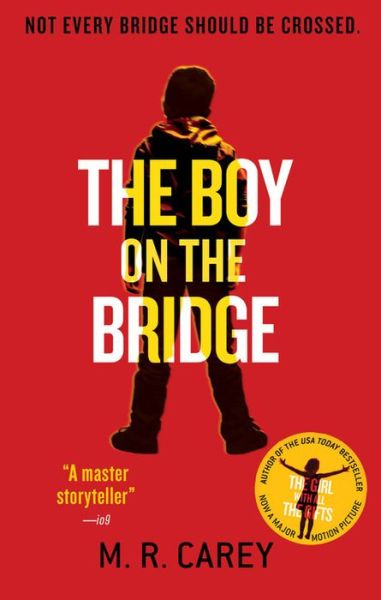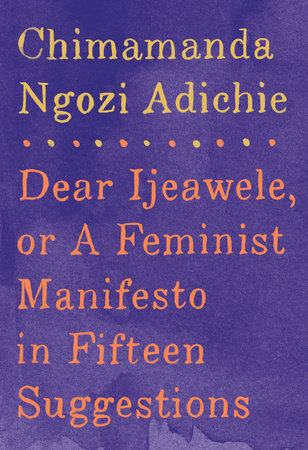Recent Acquisitions

Glory no sabe qué hacer con su vida. Marcada por el suicidio de su madre, atrapada en una amistad que se desintegra, a punto de graduarse pero sin planes en perspectiva, alberga un temor secreto: seguir los pasos de su madre, como predicen las estadísticas. Hasta una extraña noche en que Glory adquiere la capacidad de asomarse al futuro. Cada vez que mira a una persona, ve a sus antepasados y a sus descendientes. Ve acontecimientos del pasado y del porvenir. Ve el infinito. Y descubre que la humanidad se dirige a un destino aterrador. ¿Qué harias tú? ¿Intentarías cambiar el curso del mañana, transformarlo, darle la vuelta aunque pensases que el futuro no cuenta contigo? Entre la crítica social y el realismo magico una fascinante historia que recorre los tortuosos caminos de la pérdida y el destino.

Scaachi Koul deploys her razor sharp humor to share all the fears, outrages, and mortifying moments of her life. She learned from an early age what made her miserable, and for Scaachi anything can be cause for despair. Whether it’s a shopping trip gone awry; enduring awkward conversations with her bikini waxer; overcoming her fear of flying while vacationing halfway around the world; dealing with internet trolls, or navigating the fears and anxieties of her parents. Alongside these personal stories are pointed observations about life as a woman of color, where every aspect of her appearance is open for critique, derision, or outright scorn. Where strict gender rules bind in both Western and Indian cultures, leaving little room for a woman not solely focused on marriage and children to have a career (and a life) for herself.

The author shares the story of her survival during the Gatumba massacre, despite losing her mother and sister, and how after moving to America she found healing through art and activism.

In this diary-like look at his life since A Work in Progress, Connor Franta talks about his battles with clinical depression, social anxiety, self-love, and acceptance; his desire to maintain an authentic self in a world that values shares and likes over true connections; his struggles with love and loss; and his renewed efforts to be in the moment—with others and himself.

Once upon a time, in a land blighted by terror, there was a very clever boy. The people thought the boy could save them, so they opened their gates and sent him out into the world. To where the monsters lived.

Sixteen-year-old Tina and two friends leave Kenya and slip into the Congo, from where she and her mother fled years before, seeking revenge for her mother’s murder but uncovering startling secrets.

In 1983, Dustin Tillman’s family–his parents and his aunt and uncle–were murdered in a shocking massacre. His foster brother, Rusty, was convicted of the crime, in a trial that was steeped in the “Satanic Cult” paranoia of the 1980s. Thirty years later, Rusty’s conviction is overturned, and suddenly Dustin, now a psychologist, must question whether his testimony that imprisoned his brother was accurate. When one of his patients, an ex-cop, gets him deeply involved in a series of unsolved murders, Dustin’s happy suburban life starts to unravel, as his uncertainties about his past and present life begin to merge.

La vida sencilla y disciplinada de la joven Nanette está a punto de sufrir un cambio radical por un profesor y un libro prohibido que van a darle la vuelta a todo. Una novela sobre la rebeldía, el amor y la búsqueda de la identidad.

On the surface, Julissa Arce’s story reads like a how-to manual for achieving the American dream: growing up in an apartment on the outskirts of San Antonio, she worked tirelessly, achieved academic excellence, and landed a coveted job on Wall Street, complete with a six-figure salary. The level of professional and financial success that she achieved was the very definition of the American dream. But in this brave new memoir, Arce digs deep to reveal the physical, financial, and emotional costs of the stunning secret that she, like many other high-achieving, successful individuals in the United States, had been forced to keep not only from her bosses, but even from her closest friends.

A few years ago, Chimamanda Ngozi Adichie received a letter from a dear friend from childhood, asking her how to raise her baby girl as a feminist. Dear Ijeawele is Adichie’s letter of response. Here are fifteen invaluable suggestions–compelling, direct, wryly funny, and perceptive–for how to empower a daughter to become a strong, independent woman. From encouraging her to choose a helicopter, and not only a doll, as a toy if she so desires; having open conversations with her about clothes, makeup, and sexuality; debunking the myth that women are somehow biologically arranged to be in the kitchen making dinner, and that men can “allow” women to have full careers, Dear Ijeawele goes right to the heart of sexual politics in the twenty-first century. It will start a new and urgently needed conversation about what it really means to be a woman today.